Masamitsu Ohki
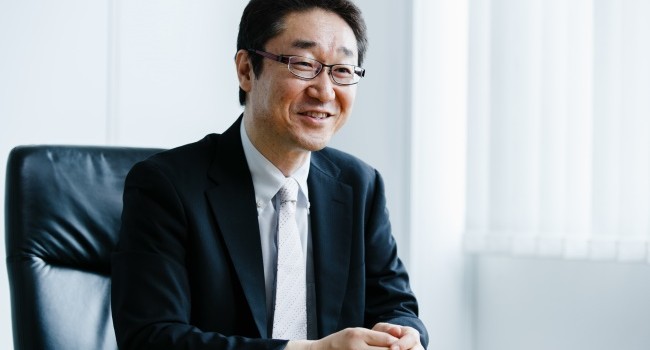
- Classification
- Equity
- Company
- Fivestar Asset Management CO.,LTD
Mr. Masamitsu Ohki is the general manager of the Investment Department at the Five Star Asset Management Co., Ltd. Prior to joining the Company in February 2014, Mr. Ohki was a fund manager and was nominated for a number of hedge fund awards during 2012 to 2013. During the period from 1997 to 2009 (approximately 11 years), Mr. Ohki worked at major foreign-affiliated securities companies, such as Deutsche Securities Inc., Lehman Brothers Securities, and Societe Generale Securities, where he served the roles of equity research analyst and credit analyst responsible for the financial sector, both banks and non-bank financial institutions. Mr. Ohki was ranked high in the Nikkei Analysts Rankings for eight consecutive years from 2002 to 2009. Prior to this, he was a consulting analyst at McKinsey & Company, where he joined in 1995. After graduating from the School of Law at Waseda University in 1989, Mr. Ohki began his career at the Industrial Bank of Japan, Limited, where he accumulated knowledge and experience in the banking business, including credit analysis.
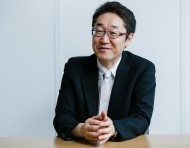
Our basic stance in managing investments is to grow and protect clients’ assets as much as possible, which is no different from the duties and responsibilities owed by a listed company to its shareholders. To implement this, it is indispensable for us to gain and sustain a competitive advantage over our competition in terms of investment universe, investment approach and investment professionals. Conversely, we can continue to win over our competition if we can fully ensure that a competitive advantage is sustained in these areas. This is our investment philosophy.
First and foremost, as (1) there are more than 3,500 listed companies in Japan, (2) the Japanese equity market is sufficiently liquid, (3) there are many sectors in the Japanese equity market, and (4) the Japanese people use the products and services offered by many Japanese listed companies on a daily basis, Japanese equity is a must investment option for Japanese investment management companies. Therefore, our primary business now centers around Japanese equity. At the same time, we have been making continuous efforts to grow non-Japanese equity businesses as well as based on our expertise and experience.
In terms of investment approach, I cannot explain it in detail as it is the proprietary expertise of an investment management company. I can only say that we will launch a long/short Japanese equity fund using big data at the end of August. We will continue to make further efforts to maximize returns and minimize risks by taking such progressive approach.
In terms of investment professionals, I currently take full responsibility for managing Japanese equity portfolios. Managing investments is an extremely tough job, and every day I cannot help but keenly feel my lack of ability and physical strength when managing investments. That said, looking at the present status of the Japanese equity management industry, honestly speaking, I feel like I can perform better than any other investment managers in managing Japanese equity portfolios. This is not just my feeling but this is my conclusion derived from my experience of working for a variety of major investment management companies in Japan and overseas and learning valuable lessons and also from working hard as an investment analyst, competing with many international investment professionals. This is the reason why I am now in charge of managing Japanese equity portfolios. If I can find somebody who is more capable of managing investments than myself, I would be more than willing to hand over my current responsibility to that person and to dedicate myself to the management of the Company. In this way, I stick to the principle that our portfolios must be managed by the most capable and suitable fund manager.
In terms of investment process, there are no particular things that I stick to. An investment process should be established by comprehensively reviewing the all-round abilities of each investment professional, such as his/her abilities to conduct human behavior analysis, corporate analysis and economic analysis, and knowledge of psychology and legal affairs. In this sense, generally speaking, I do not think it makes sense to start with establishing the form of the investment process and let the investment process have complete control over the management of investments, by completely disregarding differences in the abilities of individual investment professionals. Do you think that investment professionals can deliver the best performance when they spend an entire day, following the rules somebody else made up without asking them, such as that the first thing they must do when they wake up in the morning is to wash and shave face, and so on and on? Smart people who live smart lives have the lifestyles and rhythms that they have chosen for themselves. Conversely, I think that hiring not so smart people as investment professionals and trying to make up for their lack of abilities with an investment process is like putting the cart before the horse.
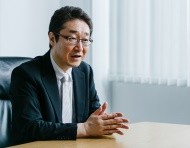
Broadly speaking, opportunities for Japanese equity investment are dictated by the broad base and depth of Japanese equity markets. In that sense, Japanese equity markets have sufficient trading volume and offer high quality investment opportunities. Now when it comes to a comparison between us and other investment professionals and investment management companies, as I said before, I cannot explain in detail, but we now have a competitive edge that no other investment management companies have. The sufficient size of Japanese equity markets and our competitive edge over other investment management companies are none other than investment opportunities for us. Conversely, things like whether a company increases or decreases capital return to its shareholders or whether the yen appreciates or depreciates are nothing but trivial matters to us. I believe that there are quite a few investment professionals and investment management companies that see each of such events as an investment opportunity. I think that this level of investment judgment by other investment professionals and investment management companies provides us with huge investment opportunities.
Incidentally, as stock prices rise and fall, even children can tell that it is better to have a long/short equity strategy. Despite this, a long/short equity strategy has been regarded as heretical due to the association of a long/short equity strategy = a hedge fund = a destabilizer of markets. For argument sake, let’s assume that hedge funds have caused the destabilization of markets. As you can see if you think twice, the cause for the market destabilization is not attributable to their long/short equity strategies but to hedge fund managers themselves. Nevertheless, we are a Japanese investment management company and we love Japan and Japanese companies. Based on this spirit, we would like to make every effort to change the image of a long/short equity strategy, going forward.
A variety of long/short equity strategies are employed by different investment managers, such as a long/short equity market neutral strategy, a long mid-and small cap/short large cap equity strategy, and a long/short equity strategy with a long bias. I manage investments in ways that I do not stick to any one specific form of a long/short equity strategy. I also would like to change the image of a long/short equity strategy by achieving higher returns in ways that I manage investments.
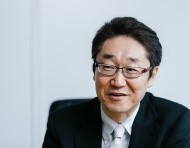
I worked for a bank, accumulating practical experience in a baking business in general, thereafter had a short experience in a consulting business and also worked for non-bank financial institutions. Honestly speaking, of all my work experiences, the credit analysis, equity analysis and management analysis of companies as well as fund management are the only areas for which I could find passion and aptitude. This is the basic reason why I have decided to work in the investment management industry.
In addition, while I was with a bank, due to the personnel change, I was assigned to a department where I hated most to be assigned in the bank, and in my twenties, I had to learn the hard way the sad reality that a company employee could not make a career choice at his/her own discretion. Taking the opportunity, I decided to break away from the destiny of being employed by a company, by which many Japanese company employees are bound, and to find employment in the true sense of the word, in other words, to find a specific job that interests me. This is another important reason why I am currently working in the investment management industry.
Against this backdrop, I changed jobs many times, got a job as an analyst and worked hard in that capacity. As an analyst, I had opportunities to meet and work with many buy-side fund managers and buy-side analysts all over the world and to confirm my position relative to industry peers, which helped convince me that I could do just fine in the investment management industry. Thereafter I became a fledgling fund manager, and after many setbacks and failures, I have become what I am now.
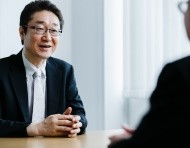
My basic stance is not to go into a fight with no chance to win. In addition, I have a strong conviction that when it comes to managing Japanese equity portfolios, Japanese investment managers cannot underperform non-Japanese investment managers. Based on these two factors, I believe that there is no way that we can underperform other investment management companies when it comes to managing Japanese equity portfolios. It is a different story when it comes to managing non-Japanese equities. There are many talented players on the international scene, as exemplified by soccer and baseball, and my chance of winning in that space is much smaller. This way, it is extremely important to fully understand the relative positioning of one’s ability to manage equities. When you are still young, it may be appropriate to think that the path will open up if you do your best to complete a given assignment. But if you are in your late 30s or older and continue to think that way, you might as well ask yourself a question whether a given assignment is too easy or you have not been able to firmly establish your positioning.
One of my mottos is to make more efforts and work harder than anybody else. Can you comfortably entrust your valuable money to a fund manager who goes on vacation for more than one week like nothing is wrong?
Another of my mottos is to be humble. It is impossible for us to properly fathom everything. The basic of being a fund manager is to understand the limits of human abilities.
Lastly, I pay full attention to maintaining health and physical fitness. It is difficult to keep it up, but I at least make sure that I have enough sleep every day so that I will not be overwhelmed by markets. Once you decide not to do something, you should not go along with the crowd. The things that I am glad I did not do when I was younger are that I did not spend much of my time playing mahjong, golf, etc., which I did not particularly like playing. I have not played mahjong or golf even once since I quit the bank in 1995. I spent time doing the things that I thought I should do, especially focusing on improving the areas in which I needed to strengthen myself, which I believe has made me what I am today.
Mind you, I do not mean to say that it is all right to do only what you like. During my days as a new employee at the Industrial Bank of Japan, Limited, my first employer, I had to obey what my senior colleagues said. During my days at McKinsey & Company, I was told to throw away all my existing ways of thinking. In those days, I often hated to go along with what was said or felt bitter about it, but when I actually did it, I often realized that I had had too many preconceived dislikes about things, which I think have turned out to contribute a lot to my later professional career. Therefore, I make it a rule not to develop pre-conceived dislikes about things. Recently, it seems to me, many people are wasting their valuable time listening to only the music that they like, writing on Facebook when, where and what they eat, or doing things like that. I already have many opportunities to interact with many talented top executives and analysts on a daily basis, and I have absolutely no desire to interact with other people during my private time when I can shut off interaction with others. If you are immersed in social media from the time when you wake up in the morning until you go to bed, you should ask yourself a question: “Am I putting all my energies at work?” or “Am I playing into the hands of social media operators under the false illusion that I am completely exploiting social media ?” I can say for sure that you will never be able to come up with good ideas unless you can turn your life on and off. Many people willingly and blindly go along with the flourishing trend of social media, which I think is one of the very reasons why a non-tech-savvy person like myself can continue to succeed as a fund manager.
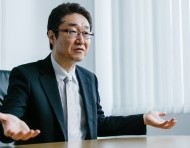
There are two elements ? psychological and technical ones. The psychological element is our determination to protect clients’ valuable assets at any cost. As assets under our management fail to increase as much as desired, I cannot help but more keenly realize the importance and weightiness of assets entrusted by clients to us. I believe that, at major investment management companies, an overwhelming majority of fund managers are entrusted to manage assets of billions of dollars or tens of billions of dollars, without going through all the pains of raising funds, and I have to wonder how much they appreciate the importance and weightiness of clients’ assets. The technical element is concerned with expertise and is a perennial issue, so I would like to refrain from making specific comments about it. But I only say that we consider it as an extremely important factor in asset management.

The Mind of Strategists: The Art of Japanese Business (published as Kigyo Sanbo in Japan) by Kenichi Ohmae. I was in my twenties when I read this book, and this book provided a trigger for me to keenly feel the necessity of changing my way of thinking.
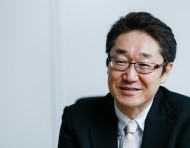
What I read and check is not much different from what everybody else does. However, even if people read and check the same media, what makes a difference is sensitivity and the ability to come up with ideas, in other words, the ability to process information, after taking in a lot of information. Many people tend to devote too much time collecting a lot of information, ignoring the much more important process of processing information. I believe that it is this ability to process information that is the very basic ability of fund managers. It is not easy to improve or evolve this ability, in which I believe I excel over many other fund managers.
Notes:
This article originally appeared on July 10, 2015. Any views presented in this article are as of such date and are subject to change.
This article and the information provided therein are not a recommendation to purchase or sell any security, nor are they intended to constitute the marketing of, or a solicitation for investment in, any investment product.
Five Star Asset Management Co., Ltd., was incorporated in April 2009 as an independent investment management company. The Company’s main businesses consist of (1) asset management based on a discretionary investment management contract, (2) the setting-up of investment trusts (both public and private placements) and asset management, and (3) investment advisory services. We started offering discretionary investment management services in October 2009, in which we primarily manage domestic and international funds, as well as the assets of corporate pension funds and other qualified institutional investors, among others. We have been offering investment advisory services exclusively to professional investors since December 2012. As for our investment trust management business, we set up our first publicly placed investment trust fund in November 2013 and have managed the fund since. As of the end of June 2015, the number of publicly placed and privately placed investment trust funds under our management is three and five, respectively. We have been a member of the Japan Investment Advisers Association since October 2009 and a member of the Investment Trusts Association, Japan, since September 2013.
We are an independent, boutique investment company with greater emphasis on bringing uniqueness and originality to the fore, and we have been making continuous efforts to enhance the quality of our investment management services in order to establish ourselves as a company that can make our customers truly satisfied.
Our strategy seeks to achieve absolute return by employing a long/short Japanese equity strategy. Our investment universe is more than 1,000 companies that are selected from among approximately 4,000 companies listed and to be listed on the Japanese financial instruments exchange. We select and invest in companies that are most appropriate for the size of a fund through bottom-up research and analysis of individual companies. The investment universe is broad, encompassing both value and growth stocks and all sectors, and not constrained by any specific theme, sector, etc. Our primary focus sectors are the financial and real estate sectors, where the extensive experience of our fund managers can be fully leveraged. We primarily focus on mid- and long-term investment strategies, but at the same time we make every effort to ensure that we maximize short-term return as well where appropriate. In the belief that everyday efforts to build optimal portfolios can go a long way and ultimately lead to the construction of the most optimal portfolios for mid- and long-term investment, it is our policy to change stock holdings flexibly (adjust net exposures) to ensure that a portfolio remains optimal. From the perspective of risk management, we focus on portfolio diversification from diverse points of view by ensuring that a portfolio consists of approximately 100 to 200 stocks in a long position and approximately 50 to 100 stocks in a short position. We also invest in stock index futures, etc. for hedging purposes as necessary.

July 10, 2015
by Investment in Japan

